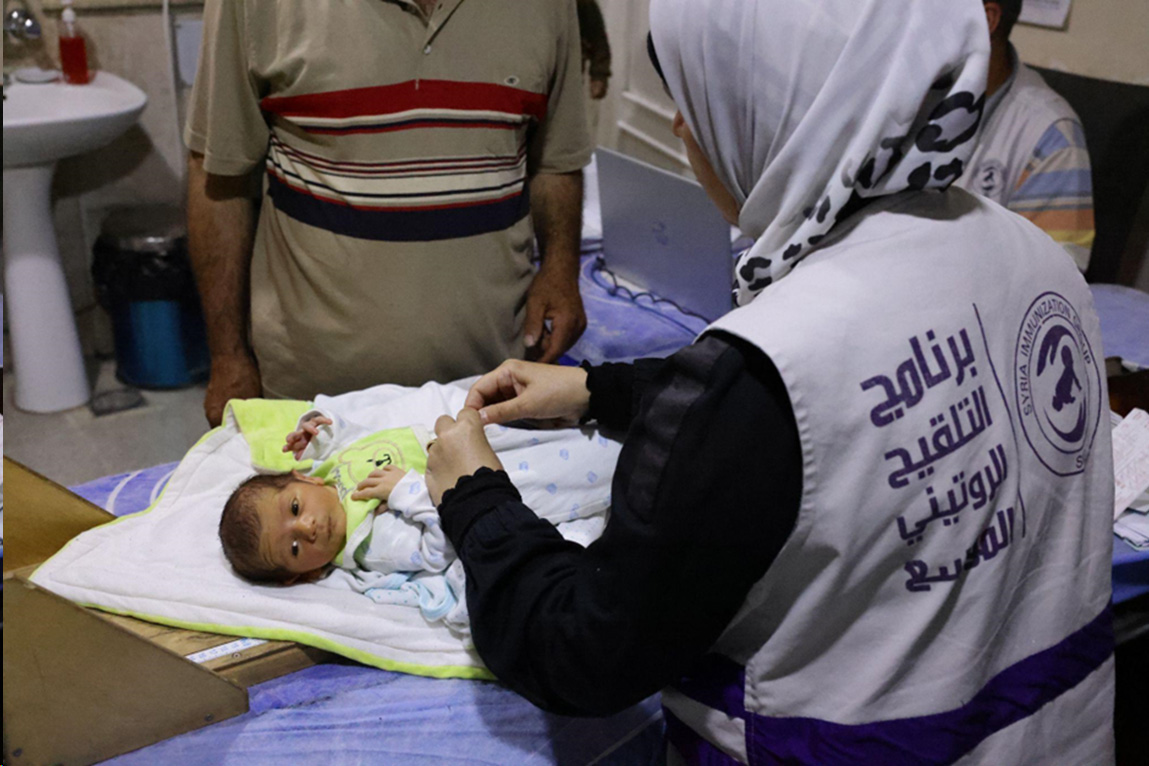 Majed stands beside his newborn baby as a health worker administers a routine vaccine as part of continued efforts to protect children from preventable diseases in conflict-affected areas. Photo: WHO20 July 2025, Syrian Arab Republic – At a clinic in Idlib, Majed gently rocks his newborn son after a routine vaccination. It’s a moment repeated every day across Syria but for parents like Majed, it carries a deeper meaning. “Our generation received vaccines, and we know how important they are,” he says. “That’s why we made sure to vaccinate our children from the start.”
Majed stands beside his newborn baby as a health worker administers a routine vaccine as part of continued efforts to protect children from preventable diseases in conflict-affected areas. Photo: WHO20 July 2025, Syrian Arab Republic – At a clinic in Idlib, Majed gently rocks his newborn son after a routine vaccination. It’s a moment repeated every day across Syria but for parents like Majed, it carries a deeper meaning. “Our generation received vaccines, and we know how important they are,” he says. “That’s why we made sure to vaccinate our children from the start.”
After more than 14 years of crisis, access to health services remains a challenge for many communities but efforts to strengthen and expand care are gaining ground. Families in rural or hard-to-reach areas often face long journeys to the nearest clinic. “In the cities, it’s easier,” Majed explains. “But many people in the smaller villages still struggle to get vaccines for their children. That’s why outreach matters so much.”
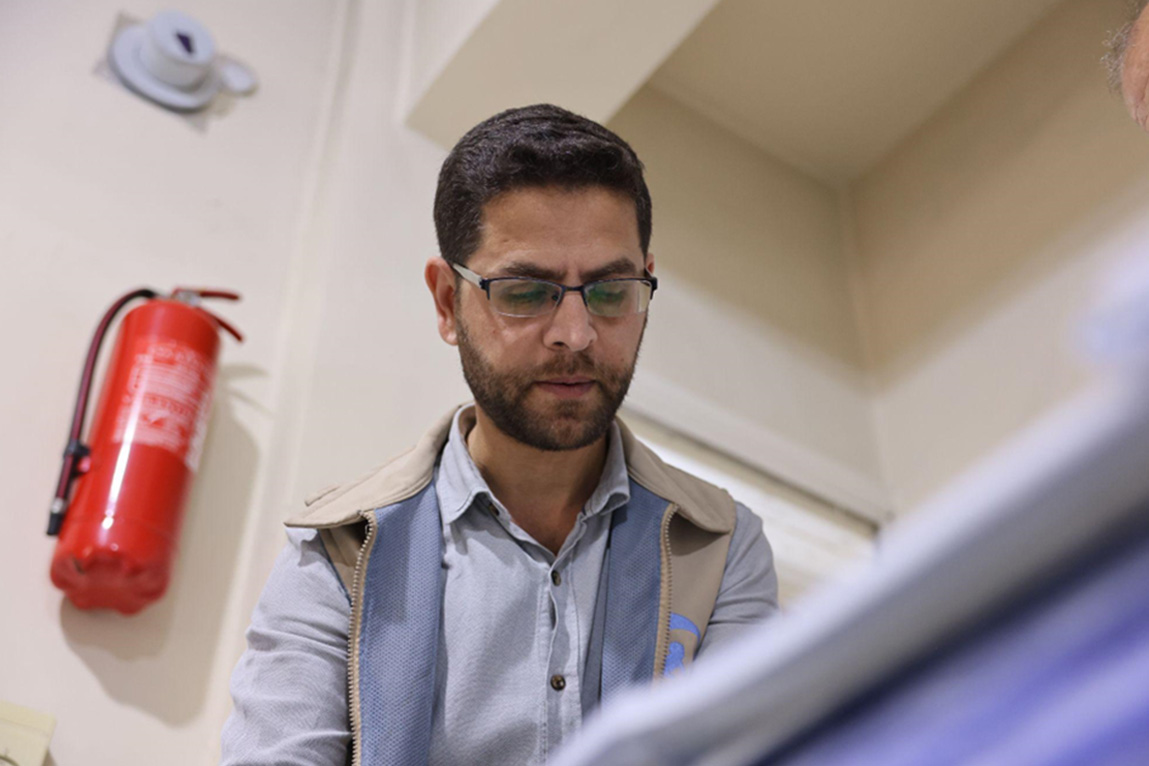 Ahmad, a community mobilizer at the Abi Dhar Health Centre, supports vaccination efforts by guiding families and addressing concerns. Photo: WHOIn the face of these challenges, health workers across Syria are working tirelessly to ensure every child is protected. From fixed centres to mobile vaccination teams, services are being delivered where they’re needed most backed by dedicated staff, digital tools and strong community outreach.
Ahmad, a community mobilizer at the Abi Dhar Health Centre, supports vaccination efforts by guiding families and addressing concerns. Photo: WHOIn the face of these challenges, health workers across Syria are working tirelessly to ensure every child is protected. From fixed centres to mobile vaccination teams, services are being delivered where they’re needed most backed by dedicated staff, digital tools and strong community outreach.
Ahmad, a community mobilizer at the Abi Dhar Health Centre in Idlib, plays a key role in that effort. He helps track immunization schedules, raise awareness among families, and ensure no child is left behind. “We recently introduced an electronic registration system for children who receive vaccines,” he says. “Now we can track their next dose, follow up if they miss an appointment, and make sure they complete the schedule.”
The system has already helped reduce dropouts and strengthened coordination between health teams and families. But Ahmad says that information and trust are just as important. “Some people still believe rumors that vaccines are harmful,” he explains. “So, we go house to house, talk to families, explain how vaccines protect their children. It takes time, but it’s working.”
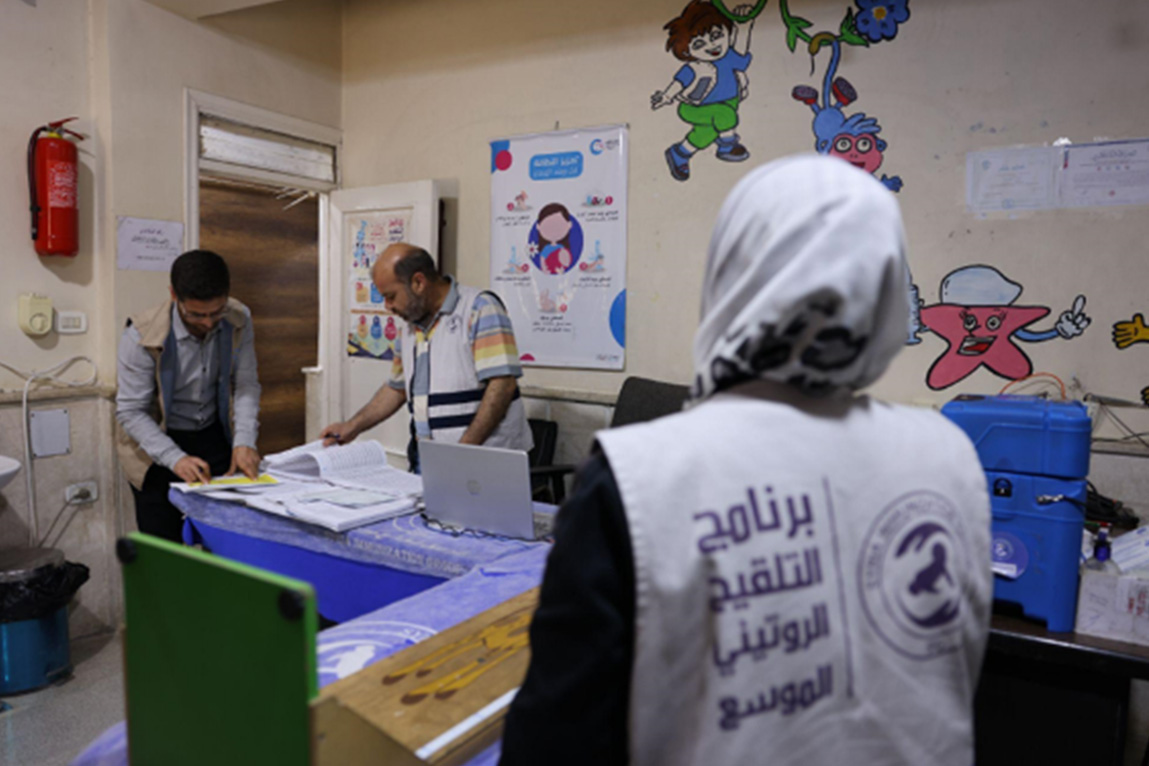 Health workers at a vaccination centre in Idlib prepare for the day’s immunization efforts. Photo: WHOHealth workers also ensure the integrity of the cold chain, storing vaccines at the right temperature and checking them before use. “We take every step to make sure vaccines are safe,” says a senior nurse at the facility. “Parents are trusting us with their children’s health and we never take that lightly.”
Health workers at a vaccination centre in Idlib prepare for the day’s immunization efforts. Photo: WHOHealth workers also ensure the integrity of the cold chain, storing vaccines at the right temperature and checking them before use. “We take every step to make sure vaccines are safe,” says a senior nurse at the facility. “Parents are trusting us with their children’s health and we never take that lightly.”
While misinformation remains a concern, field teams report a growing shift in public perception. More parents now understand the benefits of vaccination and see it as a basic right. “Children can’t speak for themselves,” the nurse adds. “It’s up to us as health workers and parents to protect them.”
Still, sustaining these gains is not easy. Many clinics continue to rely on external support for staffing, supplies, and transportation. In areas where health infrastructure remains limited, mobile teams are often the only option. As more families return and reconnect with essential services, continued investment and coordination remain critical to keep immunization going and to strengthen the health system for the future.
Majed’s story and the stories of thousands of parents like him are a reminder that even in times of uncertainty, parents continue to show up for their children. And that behind every vaccine delivered is a network of health workers, logisticians and community leaders committed to building a healthier future.
These services are part of a joint effort involving the Ministry of Health, UNICEF, WHO and health partners, with support from Gavi, the Vaccine Alliance. In Idlib and Aleppo, more than 80 immunization centres and outreach teams are operating with collective support. As Syria enters a new phase of recovery, these locally led efforts mark an important step towards a more integrated and nationally supported health system.
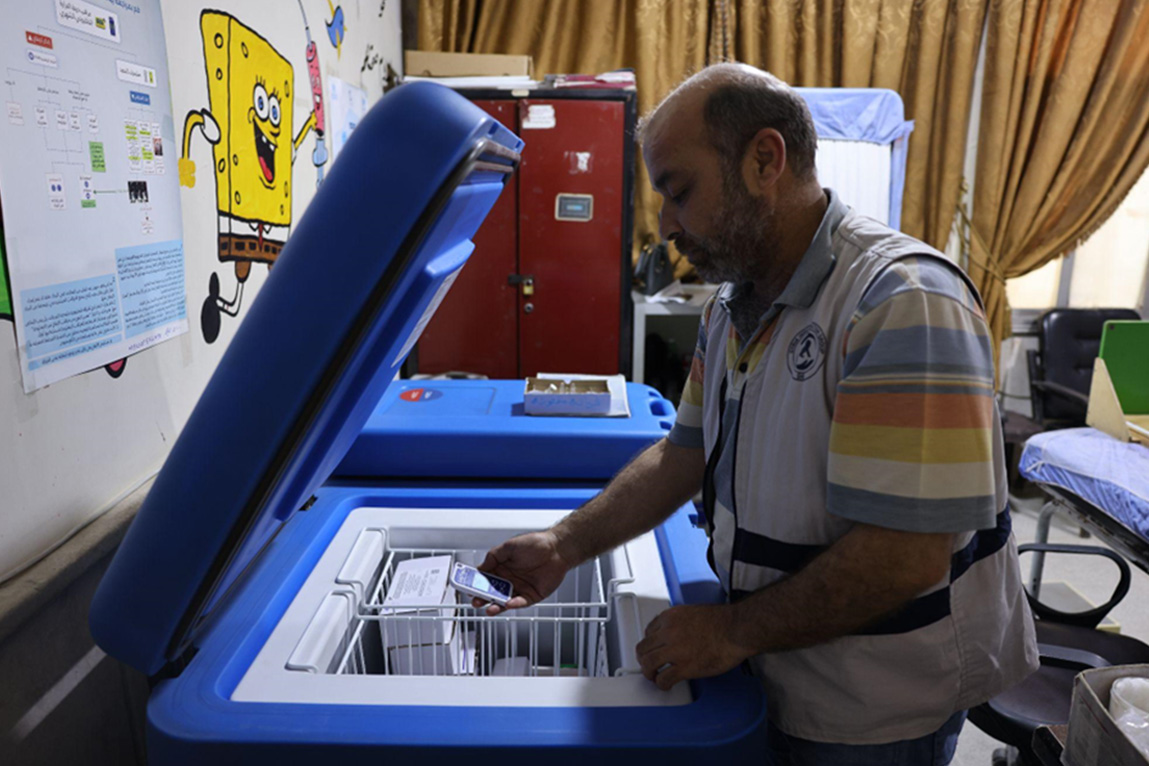 In Idlib, a health worker checks the temperature of the vaccine storage unit to ensure vaccines are safely preserved. Photo: WHO
In Idlib, a health worker checks the temperature of the vaccine storage unit to ensure vaccines are safely preserved. Photo: WHO
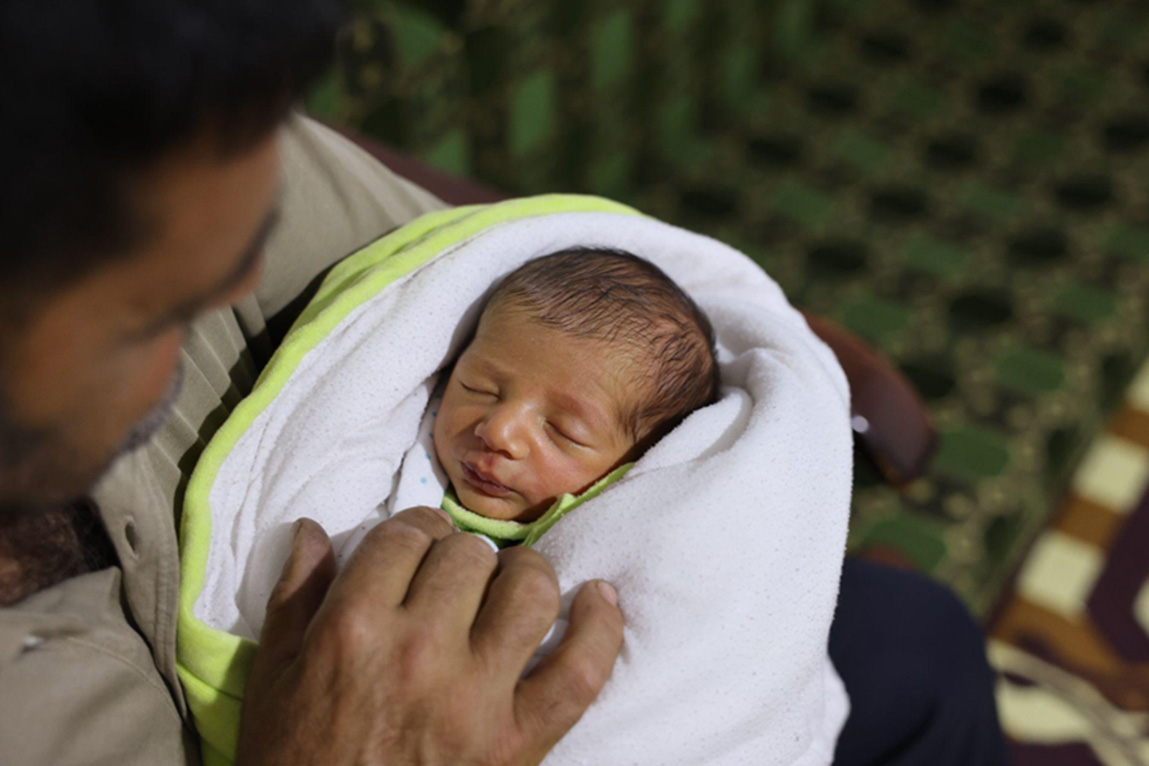 Majed holds his newborn baby after a routine vaccination, committed to protecting his child from preventable diseases from the very first days of life. Photo: WHO
Majed holds his newborn baby after a routine vaccination, committed to protecting his child from preventable diseases from the very first days of life. Photo: WHO



